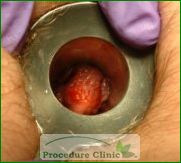Anorectal Care | No Scalpel Vasectomy | Varicose Veins | Nail Care | Skin Cancer | Skin Lesions | Cysts | Lipoma | Hyperhidrosis | Biopsy | Endoscopy | Breast Lump | Joint Pain | Acupuncture
Introduction | Infrared Coagulation | IRC FAQ | Banding | Banding FAQ | Hemorrhoidectomy | Sphincterotomy | Anal Fistula Surgery | Anal Tag Removal | Anal Wart Removal
What is Rubber Band Ligation?
Rubber band ligation is an office procedure in which the prolapsed hemorrhoid tissue is tied off at its base with rubber bands, cutting off the blood flow to the hemorrhoid. Rubber band ligation works very well for the prolapsed internal hemorrhoids, such as the advanced grade 2 and grade 3 hemorrhoids.
How is the Rubber Band Ligation performed?
The process involves a doctor inserting an anoscope into the anus and grasping the prolapsed hemorrhoid with an instrument to place a rubber band around its base. The procedure is done in a doctor’s office and only a couple of minutes. Treatment is usually limited to 1 hemorrhoid each office visit and additional areas may be treated at 2 week intervals.
Is the Rubber Band Ligation performed under local anesthesia?
No. The nerves that are located higher up the anal canal (above the dentate line) do not sense pain, though they do feel pressure. The internal hemorrhoids located above the dentate line will be associated with these visceral nerves, so the rubber band ligation is usually a painless procedure.
Why is it done?
Rubber band ligation is one of the most popular treatments for internal hemorrhoids. If symptoms continue after three or four treatments, surgery may be the next option.
What to expect after treatment?
Some patients may feel tightness and mild pain or feel as if you need to have bowel movement. People respond differently to this procedure. Most patients are able to return to regular activities (but avoid heavy lifting) almost immediately. A few patients may need a few hours or a day of rest. You may use Tylenol or Ibuprofen as needed and do a lot of sitz bath for 15-30 minutes at a time to relieve discomfort. Some patients may have slight rectal bleeding in a week, when the hemorrhoid dies off, however, if you notice significant rectal bleeding, then you should call your doctor’s office.
How well does it work?
Up to 80% of people who have gone through the procedure said their symptoms improved.
Any Risks?
Side effects are rare, but may include:
- Severe pain that won’t go away even after various methods of pain relief are used. The bands may be too close to the area in the anal canal that contains pain sensors.
- Bleeding from the anus
- Inability to pass urine (urinary retention)
- Infection in the anal area.





